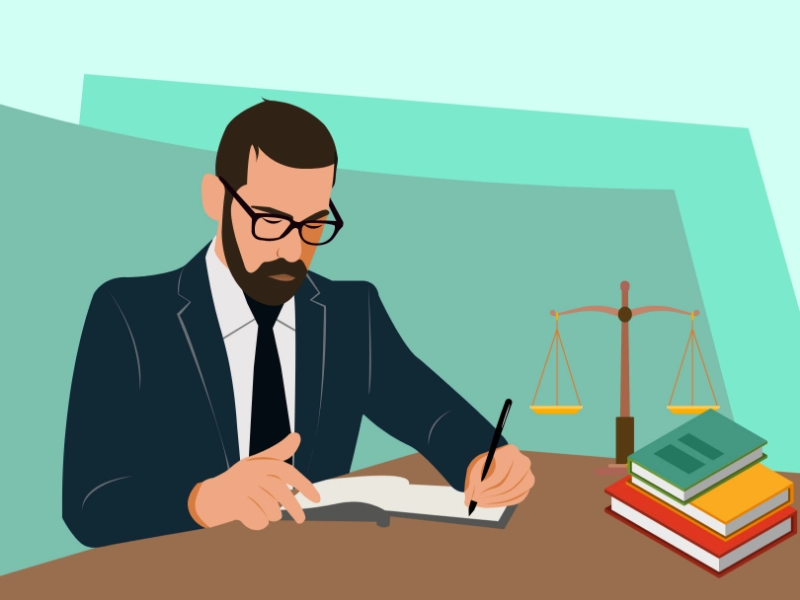Maintaining a balance between rights and access in the face of the digital economy's continual disruption is still a difficulty. IP law companies are essential to the development of legal tactics, the defense of clients against infringement, and the fair distribution of cutting-edge technology. They need to be adaptable enough to change with the always-evolving intellectual scene. This calls for legal knowledge of changing laws and new developments, such as:

 The emergence of machine learning has presented several distinct obstacles for intellectual property law. For instance, the intricacy of machine learning algorithms makes patenting them frequently unfeasible. Alternatively, code, documentation, and graphics—as well as other expressive features of these technologies—may be protected by copyrights. A cheap, automatic, and globally recognized kind of protection is provided by copyrights.
The rise of content produced by artificial intelligence presents another difficulty. The ability of AI systems to produce literature, art, and music independently is beginning to erode ideas about who is the creator. To solve problems like attribution and recompense, IP laws will need to undergo a substantial evolution.
The advancement of machine learning presents special opportunities as well as challenges for owners of intellectual property. Businesses that are open to innovation and work with legal professionals can prosper in this dynamic environment.
The emergence of machine learning has presented several distinct obstacles for intellectual property law. For instance, the intricacy of machine learning algorithms makes patenting them frequently unfeasible. Alternatively, code, documentation, and graphics—as well as other expressive features of these technologies—may be protected by copyrights. A cheap, automatic, and globally recognized kind of protection is provided by copyrights.
The rise of content produced by artificial intelligence presents another difficulty. The ability of AI systems to produce literature, art, and music independently is beginning to erode ideas about who is the creator. To solve problems like attribution and recompense, IP laws will need to undergo a substantial evolution.
The advancement of machine learning presents special opportunities as well as challenges for owners of intellectual property. Businesses that are open to innovation and work with legal professionals can prosper in this dynamic environment.
 With the use of virtual reality (VR) technology, people can fully submerge themselves in a synthetic setting. Applications for it include e-commerce, entertainment, and more. Virtual reality (VR) is a fascinating and cutting-edge technology that could significantly affect intellectual property law in the future.
Similar to video games, virtual reality (VR) presents a number of intellectual property issues that call for a careful review of current legal frameworks. For instance, it's critical to comprehend how VR affects copyright and trademark protection. This entails creating explicit content licensing agreements, putting strong protection mechanisms into place, and comprehending how current trademark and copyright laws protect VR-enabled material.
The role of privacy in VR is another important concern. Experiences made possible by VR must abide by stringent data protection regulations. This necessitates that developers get users' consent, be open and honest about their data practices, and provide consumers with controls over their personal data. Furthermore, in order to foster trust and an innovative culture that prioritizes privacy, VR-enabled experiences need to embrace privacy by design principles.
With the use of virtual reality (VR) technology, people can fully submerge themselves in a synthetic setting. Applications for it include e-commerce, entertainment, and more. Virtual reality (VR) is a fascinating and cutting-edge technology that could significantly affect intellectual property law in the future.
Similar to video games, virtual reality (VR) presents a number of intellectual property issues that call for a careful review of current legal frameworks. For instance, it's critical to comprehend how VR affects copyright and trademark protection. This entails creating explicit content licensing agreements, putting strong protection mechanisms into place, and comprehending how current trademark and copyright laws protect VR-enabled material.
The role of privacy in VR is another important concern. Experiences made possible by VR must abide by stringent data protection regulations. This necessitates that developers get users' consent, be open and honest about their data practices, and provide consumers with controls over their personal data. Furthermore, in order to foster trust and an innovative culture that prioritizes privacy, VR-enabled experiences need to embrace privacy by design principles.
 Blockchain is an immutable record-keeping system with many uses. It is most known as the technology underlying cryptocurrency. It is utilized in the supply chain for democratic election voting, product and state identification, home deeds, and other purposes. It could alter intellectual property protection in a number of ways, including by making it simpler to establish the legitimacy and ownership of patents, trademarks, copyrighted works, and other intellectual property assets.
When IP rights are recorded in a distributed ledger using blockchain technology instead of a conventional database, the rights are essentially transformed into "smart IP rights." For instance, in order to register a trademark, one must frequently provide evidence of usage, either in court or at an intellectual property office. This evidence may include evidence of acquired distinctiveness or secondary meaning, initial use, genuine use, or goodwill.
To fully utilize blockchain in IP, however, a number of obstacles must be overcome by the international IP community. These include significant upfront costs, interoperability, scalability, intercultural and organizational resistance to change, and standardization. In this sense, groups such as WIPO are leading initiatives to further explore and standardize IP systems based on blockchain technology worldwide.
Blockchain is an immutable record-keeping system with many uses. It is most known as the technology underlying cryptocurrency. It is utilized in the supply chain for democratic election voting, product and state identification, home deeds, and other purposes. It could alter intellectual property protection in a number of ways, including by making it simpler to establish the legitimacy and ownership of patents, trademarks, copyrighted works, and other intellectual property assets.
When IP rights are recorded in a distributed ledger using blockchain technology instead of a conventional database, the rights are essentially transformed into "smart IP rights." For instance, in order to register a trademark, one must frequently provide evidence of usage, either in court or at an intellectual property office. This evidence may include evidence of acquired distinctiveness or secondary meaning, initial use, genuine use, or goodwill.
To fully utilize blockchain in IP, however, a number of obstacles must be overcome by the international IP community. These include significant upfront costs, interoperability, scalability, intercultural and organizational resistance to change, and standardization. In this sense, groups such as WIPO are leading initiatives to further explore and standardize IP systems based on blockchain technology worldwide.